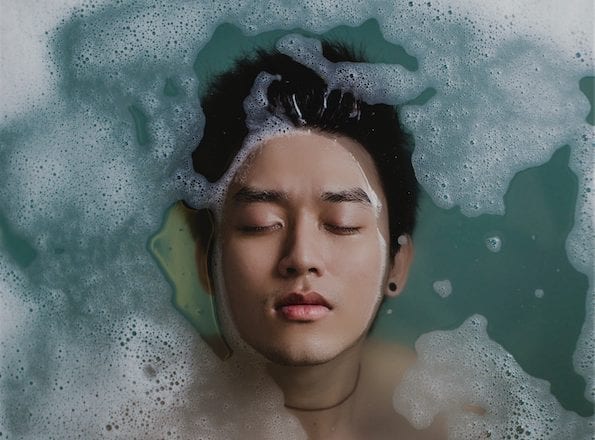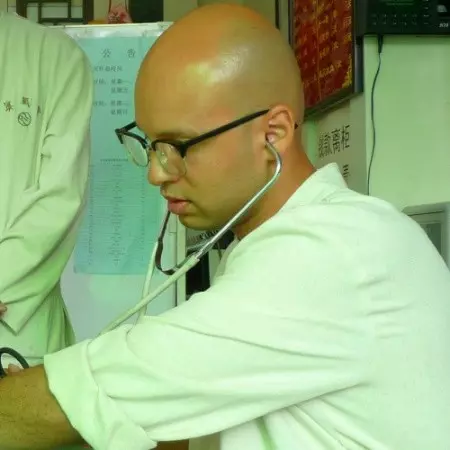By David Heron, LAc
The benefits of Chinese Medicine show clearly in the skin of patients treated by TCM dermatologists. Present day TCM dermatologists employ a practice that has been developing as a specialized field of Chinese Medicine since at least 300-200 BCE when the ‘yang yi’ or ‘sores doctor’ was designated as one of the four main medical specialties in the Confucian classic The Zhou LI (Rites of Zhou), a Confucian ancient ritual text (Erikson, 2012) . In order to shed light on the current practice of TCM dermatology, this article will review the training and practice of Dr. Trevor Erikson, a trained TCM dermatologist.
The Rising Demand for TCM Dermatology
Diseases of the skin are just as prevalent now as they were in the past. There is a need for highly-trained practitioners offering time-tested and effective treatments. The Center For Disease Control estimates that there were 39 million office visits to dermatologists (MD/DO) in 2010 in the United States, 66% of which resulted in the prescriptions of medication. TCM dermatology offers treatments for common ailments including acne, eczema, and psoriasis that are safe and more desirable to many than conventional treatments such as corticosteroids or antibiotics. Therefore, a growing number of Chinese medicine practitioners in the West are looking to specialize in dermatology.
The TCM Diploma Course of Practical Dermatology taught by Dr. Mazin Al-Khafaji is one of the most respected TCM dermatology courses in the West, drawing students from all over the world. This diploma course consists of four modules taught over the course of a year, with each module involving three days of consecutive teaching and testing. Dr. Trevor Erikson was one of those practitioners drawn to Dr. Al-Khafaji’s courses.
Are you interested in becoming a certified acupuncture professional?
Visit the links below to explore our specialized acupuncture programs at a campus near you:
Dr. Trevor Erikson’s Journey in TCM Dermatology
Dr. Erikson first completed Dr. Al-Khafaji’s diploma course in 2007, graduating first in his class. Despite this, due to his appreciation for the art of specialization in Chinese medical dermatology, Dr. Erikson traveled to the U.K. to complete the course again in 2012. Dr. Erikson’s immersion in the field of TCM dermatology led him to register for the Practical Dermatology Diploma course for a third time when it began in fall 2016 in San Jose, CA. Prior to completing Dr. Al-Khafaji’s courses, Dr. Erikson first began his training in the treatment of skin disorders in 2005, spending a few months at the dermatology ward of the TCM Hospital of Chengsha, Hunan, under the guidance of Dr. Luo Guanghua. Dr. Erikson’s trainings underscore that specialization in TCM dermatology requires more than a weekend course.
In order to better understand what goes into the specialization of TCM dermatology, Dr. Erikson was kind enough to answer the following questions:
How important do you think specialization is in TCM, particularly in dermatology?
Dr. Trevor Erikson: “While I do think that some practitioners are good at applying general Chinese medicine theories to treat everyone that arrives their clinic, it has been my experience that those who narrow their focus to treat fewer issues become more competent at treating those issues. There is just so much to learn, especially for dermatology. The name of the disease; how to analyze morphological changes seen on the skin; what is treatable and what is not; tried and true strategies for treatment; prognosis; and so on. These concepts are by no means modern or new, as they can be found in our earliest surviving text dedicated to dermatology, the Liu Juan Zi Gui Yi Fang (Liu Juan Zi’s Formulas Inherited by Ghosts) from 479 to 502 CE, which states:
‘The Yellow Emperor said: besides like what you say, I still do not know the natures and names of welling and flat-abscesses, the places where they arise, the form and appearance of the examined symptoms, whether or not they [can] be treated, and the time intervals of life and death. I wish to hear about these one by one.’ (Author, Qingxuan, G. – Translated by Oving, H. (2009)).
I think it is difficult to be skilled in any real significant way unless one sees similar things on a very regular basis. As Mazin likes to point out, ‘one has not even left high school until they have seen at least one hundred cases of psoriasis’. Now that I myself have seen several hundred, I would have to agree. There is just so much variance to consider, in both the diagnosis and treatment, that we can only learn via repetition, or specialization. From what I understand, dermatology was already a specified specialty in about 300 BCE, and was made even more so by the Song dynasty (around 1100 CE), when state-controlled training and examinations regulated the practice of dermatology. I see no reason why we shouldn’t continue in this way here in North America.
What drew you to dermatology?
Dr. Erikson: Back in 2001, I witnessed my girlfriend (now wife) use Chinese herbal medicines to overcome a life long battle with atopic eczema. She had literally tried everything else, from steroid creams to oatmeal baths to altering her diet to meditation and energy work. She spent thousands of dollars on her health, but without any noticeable improvements. Within three months on a well-crafted herbal decoction, her skin was clear, for the first time in her entire life. Even after she stopped the herbal treatment her skin remained clear for well over a decade. This instilled a deep faith in me that Chinese medicine held tremendous potential in regards to helping those suffering with skin disease. I then dedicated my life to learning how to do it.
Dermatology is a very rewarding practice, for the results are objective to both the patient and the physician. I photograph all my patients so as to properly monitor their progress. It is easy to see if the treatment is working, or if it is not. I like that.
What are common skin conditions that you treat?
Dr. Erikson: The most common conditions I see on a regular basis would be the various types of eczema (atopic, nummular, pompholox and seborrheic), psoriasis, acne, and rosacea, but I also see vitiligo, fungal and yeast disorders, and urticaria as well.
Do you use acupuncture or just internal and external herbs for dermatology cases?
Dr. Erikson: I only use herbal medicines – both internal and external. No acupuncture.
How long do patients typically need to stay in treatment?
Dr. Erikson: Patients will generally be with me for 5 to 8 months, sometimes shorter and sometimes longer. It all depends on the severity of their problem and how committed they are to the process. I generally like to see some positive signs of change within the first 2 to 8 weeks, otherwise I feel hesitant to carry on.
How often are follow-up visits?
Dr. Erikson: First follow up is in 2 weeks, with subsequent visits every 3 to 4 weeks, typically.
Do you feel that treating the skin opens the door with patients to treat other ailments they have?
Dr. Erikson: Yes, of course. I am often able to help those coming in for a skin issue with their digestion, urination, sleep, menstruation, headaches, asthma, hay fever, arthritis, and even fertility. Chinese medicine is a holistic medicine, with all body systems considered when we diagnose and treat. However, I do feel that we often need to focus on one issue at a time. Trying to treat too many things at once may prove difficult. Atopic eczema and allergic asthma would be examples of diseases that often need individual attention in order to effect significant improvement.
Can you provide pictures and information of a representative treatment case?
Dr. Erikson: [See before and after pictures] As for the case study, it was certainly a more severe and complicated presentation. Basically, the man’s skin was covered head to toe with a similar rash. I diagnosed him as having eczema due to damp heat brewing fire toxins. The herbal formulas used started with something like the first recipe and then progressed to the second one as he healed. Treatment time was about 8 months. With the exception of a minor flare-up, he has remained stable since coming off medicines.
Recipe #1 Recipe# 2
Long Dan Cao (Gentianae Radix) 9g Sheng Di Huang (Rhemanniae Radix) 15g
Huang Qin (Scutellariae Radix) 12g Mu Dan Pi (Moutan Cortex) 15g
Huang Bo (Philodendri Cortex) 9g Huang Bo (Philodendri Cortex) 9g
Huang Lian (Coptidis Rhizome) 9g Zhi Zi (Gardeniae Fructus) 9g
Zhi Zi (Gardeniae Fructus) 9g Di Fu Zi (Kochiae Fructus) 12g
Di Fu Zi (Kochiae Fructus) 12g Xi Xian Cao (Siegesbeckiae Herba) 12g
Bai Xian Pi (Dictamni Cortex) 12g Fu Ling (Poria) 12g
Bai Ji Li (Tribuli Fructus) 12g Che Qian Zi (Plantaganis Semen) 12g
Wu She Shao (Zaocys) 12g Bi Xie (Dioscoreae Hypoglaucae Rhizoma) 12g
Pu Gong Ying (Taraxaci Herba) 15g Yi Yi Ren (Coicis Semen) 18g
Zi Hua Di Ding (Violae Herba) 15g Cang Zhu (Atractylodis Rhizoma) 9g
Lian Qiao (Forsythiae Fructus) 15g Gan Cao (Glycyrrhizae Radix) 6g
Sheng Di Huang (Rhemanniae Radix) 30g
Mu Dan Pi (Moutan Cortex) 12g
Chi Shao (Paeoniae Radix Rubra) 12g
Mu Tong (Akebiae Caulis) 9g
Dan Zhu Ye (Lophatheri Herba) 9g
Gan Cao (Glycyrrhizae Radix) 6g
(Dosages listed are for daily dose of raw herbs.)
Anything else that you would like to share with other Chinese Medicine practitioners/general public?
Dr. Erikson: Chinese herbal medicine can be a very effective and safe way to treat a wide multitude of skin disorders. It takes much dedication to the process, for both patient and practitioner, but the results are well worth the efforts. For patients, I would strongly suggest that they always ask specifically what kind of training and clinical experience their physician has, and ensure that it is relevant to their particular health concern. For practitioners, have humility. Be honest with your own experience, learn what you haven’t yet figured out, and refer on when you are in doubt (Erikson, personal communication, February 10, 2016).
Moving forward into this new millennium, dermatology patients and practitioners of Chinese medicine alike are the benefactors of a practice that has truly developed over countless generations. As Westerners become more familiar with Chinese medicine, there is a budding knowledge that Chinese medicine treats more than just pain and is more than just acupuncture. A commitment to specialization in TCM dermatology brings benefits that all can see, which all but guarantees the continued growth of this field. Dr. Trevor Erikson practices in White Rock, British Columbia.
References
Center For Disease Control. (2013). National Ambulatory Medical Care Survey Factsheet: Dermatology. Hyattsville, MD. Retrieved from http://www.cdc.gov/nchs/data/ahcd/namcs_2010_factsheet_dermatology.pdf
Erikson, T. (2012) To Name or Not to Name? The Differential Diagnosis and Treatment Of Skin Disease in Chinese Medicine. Journal of Chinese Medicine, October, 100, 31 – 35.
Shaw, T., Currie, G., Koudelka,C. & Simpson, E. (2011) Eczema prevalence in the United States: Data from the 2003 National Survey of Children’s Health. Journal of Investigative Dermatology, 131(1), 67 – 73. http://dx.doi.org/10.1038%2Fjid.2010.251
Featured Posts:

